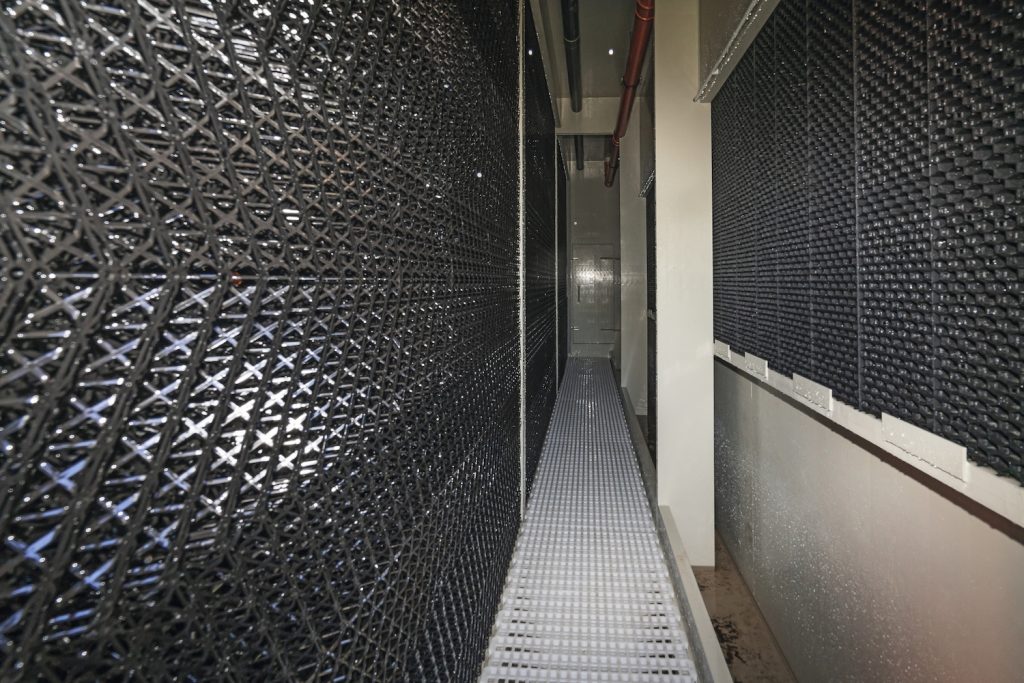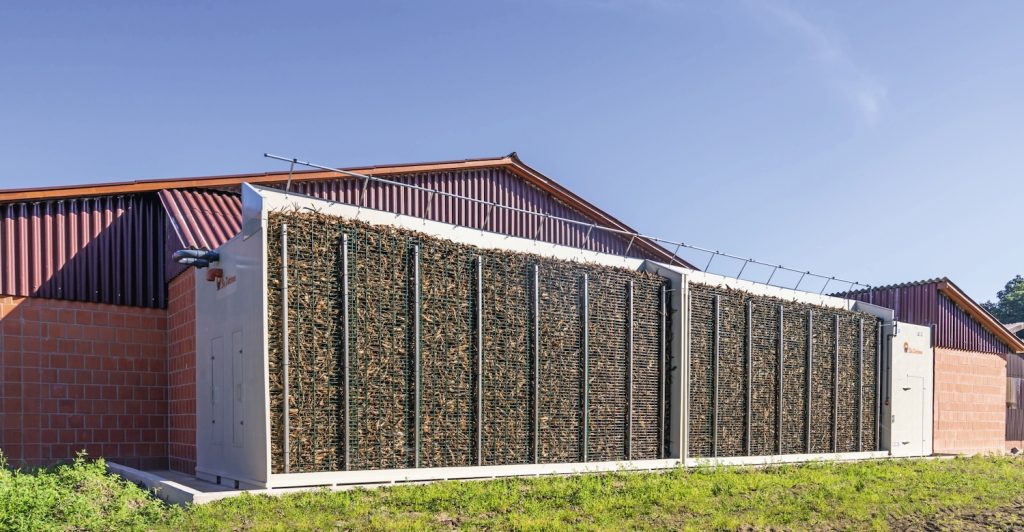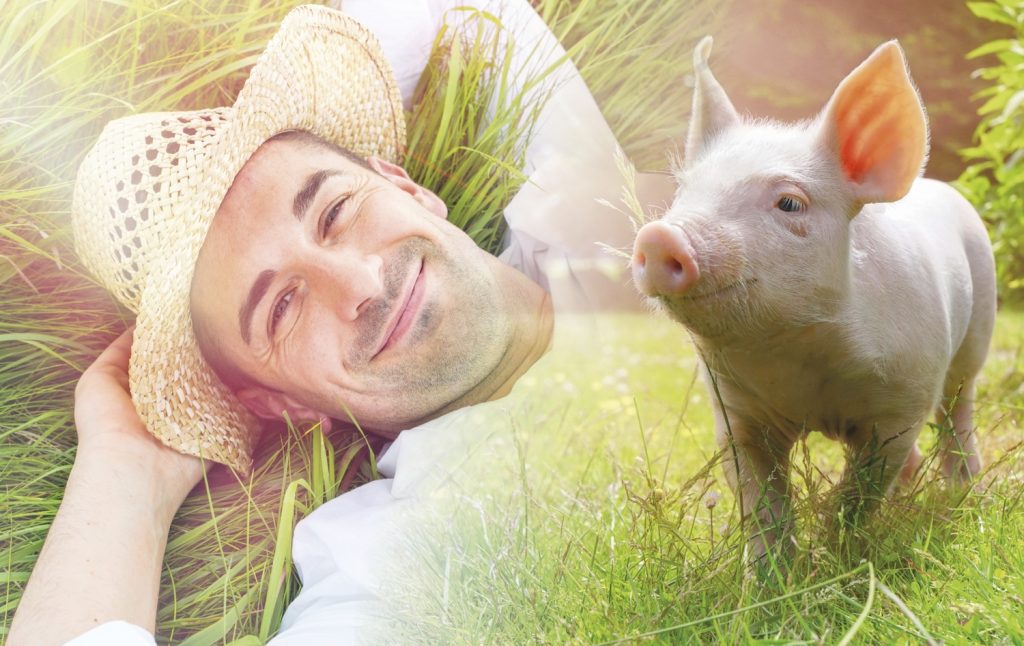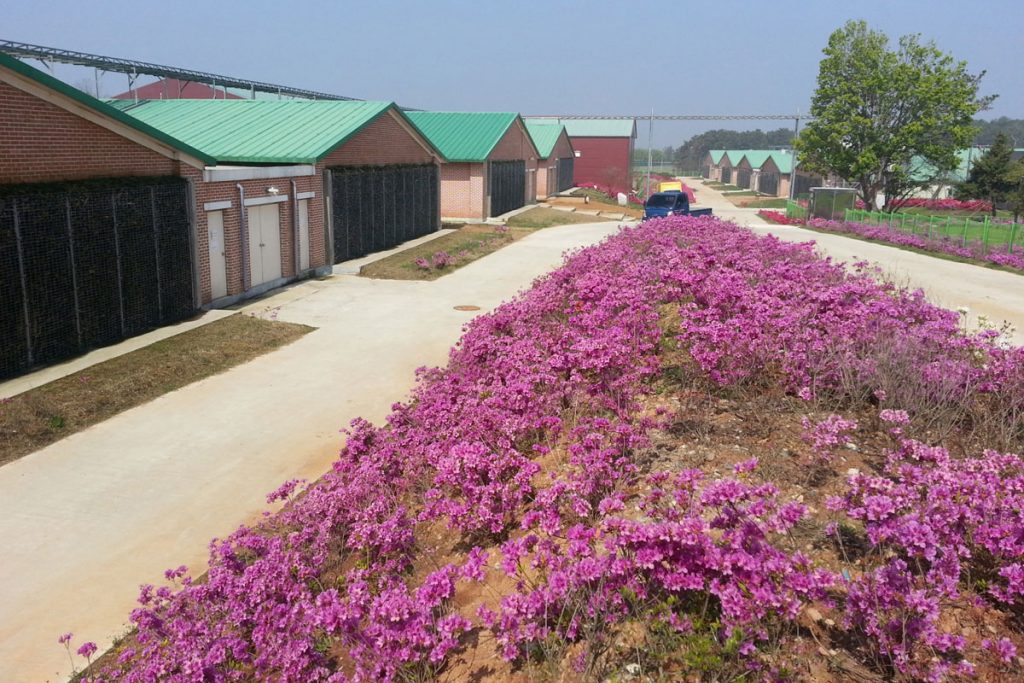Tackling ammonia, odour and dust emissions in pig and poultry housing
30th September 2020
Ammonia, odour and dust emissions are an unavoidable by-product of both poultry, egg and pig production. Exhaust air treatment systems assist with this problem by reducing emissions of odours, bioaerosols, dust and ammonia bonds by up to 90 per cent.
Ammonia, odour and dust emissions are an unavoidable by-product of both poultry, egg and pig production. Exhaust air treatment systems assist with this problem by reducing emissions of odours, bioaerosols, dust and ammonia bonds by up to 90 per cent. In many regions of the world, building permits for new barns therefore often stipulate the installation of an exhaust air treatment system.
Pig and poultry equipment supplier Big Dutchman from Vechta in Germany – whose products are distributed in the United Kingdom by British company Newquip Ltd, the sole mainland UK distributor – has been following the trend towards low-emission livestock production with its own systems for many years. Part of this process was the 2016 takeover of the Dutch company Inno+, a leading supplier of exhaust air treatment and heat recovery systems.
Big Dutchman is the recognised market leader across the entire industry, selling across five continents and in more than 100 countries worldwide. The aim is to provide practical, economical and environmentally friendly solutions that are geared to future needs, using automation and computerised management solutions. The company’s innovations have had a considerable impact on livestock management and will continue to do so in the future.
About Newquip
Newquip Limited was founded in January 2000 as a family company and since that point has been planning and implementing innovative equipment solutions for pig and poultry production, in partnership with Big Dutchman.
During that time, there have been many exciting changes and challenges within both the pig and poultry sectors. One of the latest challenges facing pig and poultry producers in some areas is to comply with environment agency requirements and to reduce ammonia emissions from pig and poultry buildings. Newquip is currently installing the first systems of this type in the UK, with other projects in the planning stages.
Knowledge has tradition
Emission protection is a topic with a long tradition for Big Dutchman, and for good reason: the company’s headquarters are located in a region with a high concentration of pig and poultry farms. These clusters have formed based on historical structures, including feed mills and slaughterhouses. The structural trend towards larger units also plays a role.
All of this means that large concentrations of ammonia, odours and dust are emitted into the environment in specific regions. Authorities therefore check emissions at the location, and today, eight out of 10 building permits granted for new barns in Germany require the installation of an exhaust air treatment system.
Washing machine
The operating principle of an exhaust air treatment system is actually quite simple: most systems operate like a washing machine, i.e. the exhaust air is washed to remove the dirt. At the end of the wash cycle, clean exhaust air leaves the barn.
And since the exception proves the rule, there are also biological filters where exhaust air flows through moist filter material instead of being washed. These filters are perfect for separating odours and dust. However, their effectiveness regarding ammonia removal is limited.
Exhaust air washers
Highest in demand are exhaust air washers with their own wash water cycle. There are single-stage biological and chemical washers as well as washers that work with multiple stages. The operating principle of all washers is based on cleaning walls that are filled with packings and continuously sprayed with wash water. During this process, the substances in the exhaust air are humidified.
‘Chemical’ means that sulphuric acid is added to the water to reduce the wash water’s pH value. This helps binding more ammonia, thus reducing water consumption.
With biological washers, the removed substances are absorbed or converted by microorganisms located in the packings.
Forced ventilation
Exhaust air treatment requires closed barns with forced ventilation. The reason for this is that the basic principle of exhaust air washers is that all or a part of the exhaust air is collected centrally so fans can push it through the cleaning system.
Many years in the business
Big Dutchman distributes single- and multiple-stage biological and chemical washers for livestock management today and in the future. The separation rates are quite impressive. For ammonia and dust, farmers achieve rates of up to 90 per cent. The odour reduction results are also very positive.
Visions for the future
In many countries, emissions from pig and poultry houses has been a hot topic for years. This is proven by the 500 exhaust air treatment systems Big Dutchman has installed at different locations, from Germany to South Korea. The livestock equipment industry still has a number of tasks on its to-do list, however. More exacting requirements regarding environmental protection need to be reconciled with efficiency. Livestock producers must be able to invest successfully into their future.

Two-stage exhaust air washer: The filter wall on the left washes ammonia and dust from the exhaust air. On the right, a droplet separator retains air that has not been cleaned yet.

Two-stage exhaust air washer: After the cleaning process, the air is pushed through the biological filter wall, which significantly reduces the pig house odour.
For further information on this or any other Big Dutchman products please contact:
Newquip Limited on 01677 428600, enquiries@newquip.co.uk, or visit http://newquip.co.uk


